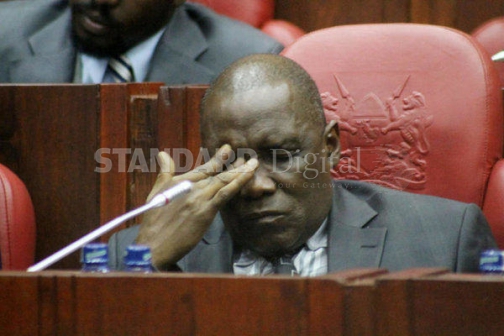×
The Standard e-Paper
Stay Informed, Even Offline

The chairman of the National Land Commission (NLC), an independent body that was supposed to fix the land problems, is on his way down, and he appears to be taking the commission with him.
Muhammad Swazuri has fought incessant turf wars with the Ministry of Lands since he took office and when he was just about to win the battle, mountains of evidence show just how the commission could have wasted public funds.